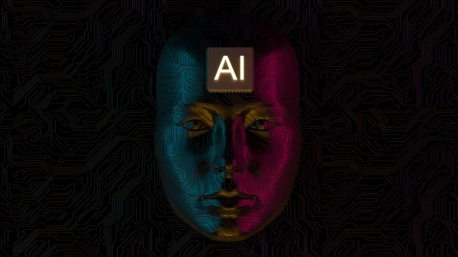Generative artificial intelligence is gaining traction as one of the most significant general-purpose technologies, following the footsteps of revolutionary innovations like the steam engine and the computer. Such general-purpose technologies historically hold the power to drastically reshape economies, redefine productivity benchmarks, and usher in an era of growth and prosperity previously unimagined.
The Potential of Generative AI
Revolutionizing Creation and Innovation
Andrew McAfee of MIT’s Initiative on the Digital Economy presents generative AI as the next transformative force in creative and innovative fields. By learning from vast swaths of data, generative AI can generate novel content ranging from written articles to music compositions. The level at which these AI systems can emulate and even surpass human creativity speaks to their potential to become indispensable tools for content creators across industries.Generative AI heralds a new age of efficiency and creativity for professionals. It can serve as a robust assistant, fine-tuning ideas, and producing high-quality results at unprecedented speeds. This capability could be instrumental in expediting scientific research, leading to quicker discoveries and the development of solutions for some of the world’s most pressing problems, including climate change and disease eradication.
Economic Growth and Productivity
One cannot understate the potential economic impact of generative AI. Its integration into various sectors is likely to propel an upsurge in productivity, reminiscent of the industrial revolution. The deployment of generative AI could slim down project timelines, enhance product design, and simplify complex processes, driving economic growth to new heights.As McAfee suggests, generative AI could significantly contribute to tasks that encompass a large portion of the job market, making a minimum of 10% of job-related tasks more efficient. This quantum leap in productivity may result in reduced working hours, improved living standards, and a complete overhaul in how businesses and economies operate.
The Challenges and Considerations
Ethical Implications and Societal Impact
With great power comes great responsibility, and generative AI is no exception to this rule. There are ethical concerns surrounding the originality and authenticity of AI-generated content, as well as the potential for misuse in creating deepfakes or spreading disinformation. Advancements in AI must, therefore, be matched with robust ethical frameworks to prevent these tools from causing harm.Generative AI could also significantly alter the employment landscape, potentially displacing certain jobs while creating opportunities for new skills to emerge. The workforce needs to be prepared for these shifts with appropriate educational and vocational training programs to ensure a smooth transition into the evolving job market.
Environmental Considerations
The operation of AI systems, especially those that require significant computational power, poses environmental challenges. The energy consumption associated with training and running complex AI models could have a considerable carbon footprint. Thus, sustainability measures and eco-friendly practices must be integral to the development and deployment of generative AI to maintain a balance between technological progress and environmental preservation.









